The Trump administration may be an opportunity for Congress to take charge on marijuana policy.
"We have no choice" but to double down on failed drug war and crime-fighting strategies, the president claims.
It's all red state medical marijuana news this week, reflecting the slow spread of acceptance to even the most conservative corners of the country.
A dozen TSA agents get popped in a massive, long-term cocaine smuggling scheme, a former DEA Special Agent-in-Charge gets his hand slapped for lying about owning a strip club, and more.
A federal bill to let states experiment with marijuana policy is back, CBD cannabis oil and medical marijuana study bills advance at the statehouse, trouble is bubbling up in Morocco's hash-producing regions, and more.
A man who thinks marijuana users aren't "good people" is now the US attorney general, New York's Democratic governor cites the gateway theory as he opposes marijuana legalization, North Dakota lawmakers kill a welfare drug testing bill, and more.
Donald Trump takes a hard line on crime and drugs, a new Michigan poll has support for marijuana legalization at an all time high, a Brazilian Supreme Court justice calls for an end to the drug war there, and more.
Los Angeles voters go to the polls next month to decide on permitting dispensaries and pot shops, a New Mexico legalization bill hits a bump in committee, an Ohio bill would restore tough cocaine sentences based on the weight of filler -- not actual cocaine -- and more.
Medical marijuana and harm reduction measures advance in New Mexico, a police drug field test kit maker is being sued by a Florida man busted for the glaze on his Krispy Kreme donuts, Idaho considers ending mandatory minimums for drug offenses, and more.
Vermont's GOP governor throws up an obstacle to marijuana legalization, the House GOP is set to vote to force unemployed workers to take drug tests before receiving their earned benefits, the rightist mayor of South America's largest city turns his back on harm reduction, and more.
The House approves a bill that could open the door to states drug testing people seeking unemployment benefits, harsh sentencing bills advance in Ohio and Kentucky, Houston decriminalizes marijuana possession (in most cases), and more.
The Alabama legislature ponders harsh drug sentences not seen since the last century, decriminalization is picking up some support in Texas, China announces scheduling controls on fentanyl, and more.
This article was produced in collaboration with AlterNet and first appeared here.
While the marijuana community -- consumers, industry, and advocates alike -- eyes with trepidation the reign of avowed drug warrior Jeff Sessions at the Justice Department, the Trump executive branch isn't the only game in town when it comes to making marijuana policy. Congress is back in session, and after last November's legalization and medical marijuana victories at the polls, the pot state delegation is larger than ever.

Congressional Cannabis Caucus co-chair Rep. Earl Blumenauer (D-OR) (house.gov)
And at least some of those senators and congressmen and women representing the 28 states (and the District of Columbia) that have embraced medical marijuana and the eight states plus DC that have so far gone for adult legalization, are gearing up to fight for reform at the Capitol.
A nascent congressional Cannabis Caucus formed in December is preparing a plethora of bills for the current session, and its members say they are optimistic about their chances, even in the time of Trump -- and Republicans holding every committee chair in both houses. It's because Congress is riding the marijuana wave, too, said caucus founder and co-chair Rep. Earl Blumenauer (D-OR).
"This Congress is going to be a little better than last Congress, and last Congress was better than the one before that," he said in an interview this week with The Cannabist. "It's very interesting watching the momentum build."
That momentum derives from public opinion polls consistently showing nationwide majorities favoring legalization and, more importantly, the actual victories at the polls in November, where legalization went four for five and medical marijuana went four for four.
"It's easier for people to embrace much of what we're doing legislatively," he said. Fixing industry-critical concerns such as the lack of operating expense deductions or access to financial services for state-legal businesses or barriers to medical marijuana research are now mere "housekeeping" issues, he added.
Nonetheless, fixes still have to get through the Congress. They haven't so far, and it's a long way between filing a bill and seeing it signed into law. Still, Blumenauer and colleagues will be pushing harder than ever.
He is joined in the Cannabis Caucus by co-chairs Reps. Jared Polis (D-CO), Dana Rohrabacher (R-CA), and Don Young (R-AL). The bipartisan grouping is notably made up of representatives from vanguard legalization states, but by no means all of them -- California alone has 53 House members -- and there is certainly room for more to come on board.
"I'm more hopeful than ever before that we can move legislation like the Regulate Marijuana Like Alcohol Act," Polis told The Cannabist, referring to last session's H.R. 1013, which picked up 19 cosponsors and was referred to a slew of subcommittees, but never even got a hearing.
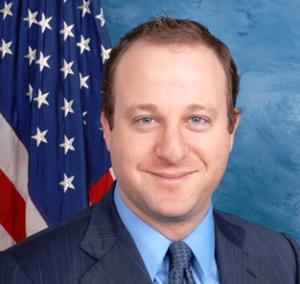
Caucus member Rep. Jared Polis (D-CO) (house.gov)
That bill was one of about two dozen pot-related proposals filed in the last session, and they're already starting to pile up again this session. While Blumenauer told
The Cannabist more were to come, here's what's on the table so far:
H.R. 331 -- Filed by Rep. Barbara Lee (D-CA), the States' Medical Marijuana Rights Protection Act would block federal civil asset forfeiture aimed at the owners of state-legal medical marijuana operations.
H.R. 714 -- Filed by Rep. H. Morgan Griffith (R-VA), the Legitimate Use of Medicinal Marihuana Act would move marijuana to the Controlled Substance Act's Schedule II, opening the door to more research and, potentially, doctors' ability to prescribe (as opposed to recommend) marijuana for patients. It would also bar the use of that act or the Food, Drug, and Cosmetic Act to interfere with medical marijuana in states where it is legal.
H.R. 715 -- Also filed by Rep. Griffith, the Compassionate Access Act would reschedule marijuana, provide for its medical use under state laws, and remove CBD (cannabidiol) from the definition of marijuana.
H.R. 975 -- Filed by Cannabis Caucus co-chair Rep. Rohrabacher, the Respect State Marijuana Laws Act would exempt people and entities from certain provisions of the Controlled Substances Act if they are acting in compliance with state laws. Rohrabacher authored similar legislation in the last Congress, garnering 20 cosponsors, including seven Republicans.
There is no outright federal marijuana legalization bill out there yet this session, but expect to see Rep. Polis come back with his bill or perhaps Bernie Sanders reviving his bill to end federal marijuana prohibition, or both. Given political realities on the Hill, though, the Cannabis Caucus will likely save its political capital for fights it might be able to win, such as fixing the tax and banking problems facing the industry.
Another key battleground -- and one where marijuana advocates have actually won before -- is the appropriations process. The Justice Department and the DEA can't go after marijuana in legal states if Congress bars them from spending any federal funds to do so, and that's exactly what Congress did when it approved the Rohrabacher-Farr Medical Marijuana Amendment last session.
If a similar amendment were to succeed again, even if Attorney General Sessions wanted to call out the cavalry, he couldn't buy the horse feed, and it wouldn't matter how many nasty memos his deputies wrote.
And while his past pronouncements are indeed worrisome, he was quite coy at his nomination hearings, saying that he "won't commit to never enforcing federal law," but adding that enforcement priorities are "a problem of resources for the federal government."
Sessions did add later in the hearings that it's not "the attorney general's job to decide what laws to enforce," but suggested that his former colleagues could settle things once and for all.
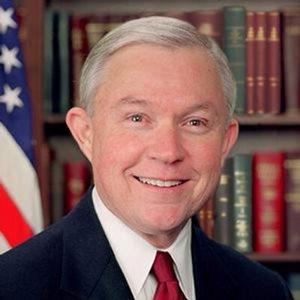
Does new Attorney General Jeff Sessions want to punt pot policy back to Congress? (senate.gov)
"I think one obvious concern is that the United States Congress has made the possession of marijuana in every state and distribution of it an illegal act," he said. "If that something is not desired any longer, Congress should pass the law to change the rule."
And then there's Sessions' boss, President Trump. While he projects a law and order image and has campaigned against "drugs," the drugs he seems most concerned about are heroin and the prescription opioids -- not pot. He's also suggested in the past a willingness to let states experiment on marijuana policy, and he has a lot of other things on his plate. It's not at all clear he would let Sessions unleash a war on weed even if he wanted to.
Earl Blumenauer doesn't think Trump wants to charge into this particular melee.
"This is a struggle and will continue to be, but this is something where I honestly don't think the new administration, which has probably enough controversy on its hands, is going to knowingly pick a fight with what, almost without exception, was approved by local voters," Blumenauer said.
To ensure that Sessions doesn't strike out, "we need to make the case directly to Trump" about the economic potential of the marijuana industry, said Polis. But until federal marijuana prohibition is ended, "the industry really exists at the discretion of the president and the attorney general, and that's a dangerous place to be," he added.
Well, and Congress, too. It holds the purse strings, after all.
Marijuana policy is going to be at play in the 115th Congress. Ending federal prohibition remains the Holy Grail, but in the meantime, there are concrete actions Congress can take to protect medical and legal marijuana and the industry it's creating. Now, let's see if the Cannabis Caucus can lead the way to some victories.
back to top
This article was produced in collaboration with AlterNet and first appeared here.
In a sharp break with the Obama administration, which distanced itself from harsh anti-drug rhetoric and emphasized treatment for drug users over punishment, President Trump last week reverted to tough drug war oratory and backed it up with a series of executive orders he said were "designed to restore safety in America."
"We're going to stop the drugs from pouring in," Trump told law enforcement professionals of the Major Cities Chiefs Association last Wednesday. "We're going to stop those drugs from poisoning our youth, from poisoning our people. We're going to be ruthless in that fight. We have no choice. And we're going to take that fight to the drug cartels and work to liberate our communities from their terrible grip of violence."
Trump also lambasted the Obama administration for one of its signature achievements in criminal justice reform, opening the prison doors for more than 1,700 drug war prisoners who had already served sentences longer than they would have under current, revised sentencing guidelines. Obama freed "record numbers of drug traffickers, many of them kingpins," Trump complained.
And in a sign of a return to the dark days of drug war over-sentencing, he called for harsher mandatory minimum prison sentences for "the most serious" drug offenders, as well as aggressive prosecutions of drug traffickers and cracking down on "shipping loopholes" he claimed allowed drugs to be sent to the US from other countries.
In a New Hampshire campaign speech during the campaign, Trump called for more treatment for drug users and more access to overdose reversal drugs, but there was no sign of that side of the drug policy equation in Wednesday's speech.
Last Thursday, Trump backed up his tough talk with action as, at the Oval Office swearing in of Attorney General Jeff Session, he rolled out three executive orders he said were "designed to restore safety in America," but which appear to signal an increasingly authoritarian response to crime, drugs, and discontent with policing practices.
The first, which Trump said would "reduce crime and restore public safety," orders Sessions to create a new Task Force on Crime Reduction and Public Policy, which will come up with "strategies to reduce crime, including, in particular, illegal immigration, drug trafficking and violent crime," propose legislation to implement them, and submit a report to the president within a year.
The second, regarding "transnational criminal organizations and preventing drug trafficking," directs various federal law enforcement agencies to "increase intelligence sharing" and orders an already existing interagency working group to submit a report to Trump within four months describing progress made in combating the cartels, "along with any recommended actions for dismantling them."
"I'm directing Department of Justice and the Department of Homeland Security to undertake all necessary and lawful action to break the back of the criminal cartels that have spread across our nation and are destroying the blood of our youth and other people," Trump said Thursday.
The third directs the Justice Department to use federal law to prosecute people who commit crimes against police officers, even though they already face universally severe penalties under existing state laws.

Trump was breathing law-and-order brimstone last week. (Gage Skidmore/Creative Commons)
"It's a shame what's been happening to our great, truly great law enforcement officers," Trump said at the signing ceremony. "That's going to stop as of today."
The tough talk and the executive orders provoked immediate alarm and pushback from human and civil rights advocates, drug reformers, the Mexican government, and even the law enforcement community. The apparent turn back toward a more law-and-order approach to drugs also runs against the tide of public health and public policy opinion that the war on drugs has been a failure.
In a report released last Friday, dozens of senior law enforcement officials warned Trump against a tough crackdown on crime and urged him to instead continue the Obama administration's efforts to reform the criminal justice system.
The report was coauthored for Law Enforcement Leaders to Reduce Crime and Incarceration by former Dallas Police Chief David Brown, who won wide praise for his response after a gun man killed five of his officers last year.
"Decades of experience have convinced us of a sobering reality: Today's crime policies, which too often rely only on jail and prison, are simply ineffective in preserving public safety," the report said.
The president's crime plan would encourage police to focus on general lawbreaking rather than violent crime, the report said. The Justice Department already spends more than $5 billion a year to support local police, much of it spent on "antiquated law enforcement tools, such as dragnet enforcement of lower-level offenses" and Trump's plan would "repeat this mistake," the officials wrote. "We cannot fund all crime fighting tactics."
Drug reformers also sounded the alarm.
"This rhetoric is dangerous, disturbing, and dishonest," said Bill Piper, senior director for national affairs for the Drug Policy Alliance. "We have had a war on drugs. It has failed. Tough talk may look good before the cameras, but history has taught us that cracking down on drugs and building walls will not stop the supply or use of drugs. It mostly causes the death and destruction of innocent lives. Trump must tone down his outrageous rhetoric and threats, and instead reach out to leadership from both parties to enact a humane and sensible health-based approach to drug policies that both reduce overdose and our country's mass incarceration crisis."
Indeed, most public health experts argue that the prohibitionist approach to drugs has been a failure. They point to research such as a 2013 study in the British Medical Journal that found that despite billions spent on drug prohibition since 1990, drug prices have only decreased and purity increased, making getting high easier and more affordable than ever before.
"These findings suggest that expanding efforts at controlling the global illegal drug market through law enforcement are failing," the authors conclude.
Public health analysts also point to research showing that between 1991 and 2001, even when the drug war was in full effect, the rate of illicit drug use among teens rose sharply, while their cigarette smoking rate fell off a bit and their alcohol use dropped sharply. The substances that are legal for adult use were less likely to see increases than ones that are prohibited, the analysts point out.
Mexican Foreign Affairs Secretary Luis Videgaray also chimed in to note that there wouldn't be any Mexican drug cartels without American demand for drugs and to remind Washington that it's not just what's being exported from Mexico that is a problem, but what's being imported, too.
"For years, from the Mexican perspective, people say, 'OK, the problem with drugs -- that it's creating so much violence, so many deaths of young people in Mexico -- is because there's demand for drugs in the US,''" Videgaray said. "We happen to be neighbors to the largest market for drugs. From the American perspective, it's just the other way around," he said, adding that both countries need to get past "the blame game."
And if the US is serious about helping Mexico disrupt the cartels "business model," it needs to stop the southbound traffic in cash and guns.
"We need to stop illegal weapons flowing from the U.S. into Mexico," Videgaray said. "We always think about illegal stuff moving through the border south to north, but people forget that most guns -- and we're not talking small guns, we're talking heavy weapons -- they get to the cartels and create literally small armies out of the cartels."

Will progress on reducing mass incarceration come to a halt? (nadcp.org)
to a comment from Attorney General Sessions at his swearing in ceremony that crime is a "dangerous permanent trend that places the lives of American people at risk," by noting that crime is down dramatically by all measures over the past 20 years despite a slight increase in violent crimes between 2014 and 2015. "There is no 'dangerous permanent trend' in violent or non-violent crime," it pointed out.
And Amnesty International swiftly reacted to the executive order calling for new federal penalties for crimes against police.
"Law enforcement officers face unique hardships and challenges due to the nature of their work," said Amnesty's Noor Mir. "Authorities are already able to vigorously prosecute crimes against law enforcement officers, and there is no history to suggest that officers are not fully protected by current laws. This order will not protect anyone, and instead it creates additional penalties that could cause people to be significantly over-prosecuted for offenses including resisting arrest.
There is a better way, said Mir, but that would require going in a radically different direction than where the Trump administration is headed.
"This order does nothing to address real and serious problems in the US criminal justice system," he said. "Relationships between law enforcement officers and the communities they serve could instead be improved by investing in reform of the criminal justice system and better training for officers. Police already have laws protecting them, but there is no federal standard for the prosecution of officers who unlawfully kill civilians. Implementing a standard for lethal force in line with international standards will protect both police and civilians."
The Trump administration has outlined an approach to drugs and criminal justice policy with dark Nixonian and Reaganite underpinnings, promising more, more, more heavy-handed policing, more swelling prison populations, and more -- not less -- distrust and suspicion between police and the communities they are supposed to serve and protect.
And, in typical Trump fashion, his brash, draconian approach to the complex social problems around crime and drugs is creating a rapid backlash. Whether the rising opposition to Trump can rein in his authoritarian impulses and regressive policy approaches to the issue remains to be seen, but a battle to stop the slide backward is brewing.
back to top
It's all red state medical marijuana news this week, reflecting the slow spread of acceptance to even the most conservative corners of the country.
ArkansasLast Wednesday, a batch of medical marijuana "fix" bills were moving. Six medical marijuana-related bills moved out of committees to face floor votes in their respective chambers. The House Rules Committee advanced five bills, while the Senate Education Committee advanced one bill. More bills are still in committee. Many of the bills deal with technical "fixes," but some of them would alter the way the program is intended to work. Click on the link for a complete rundown on the bills.
On Monday, two of the bills passed the House. The House voted to approve two bills authored by Rep. Doug House (R-North Little Rock). They are House Bill 1371, which requires that Arkansans hold 60% ownership interest in pot businesses in the state, and House Bill 1298, which requires that persons, not corporations, hold the licenses. The bills now head to the Senate.
Kansas
Last Wednesday, a medical marijuana bill was filed. State Sen. David Haley (D-Kansas City) has filed Senate Bill 155, which would allow patients with specified diseases or conditions to grow and possess medical marijuana, or have a caregiver grow it for them. The bill also envisions the creation of state regulated and taxed "compassion centers" or dispensaries.
Oklahoma
Last Friday, a medical marijuana bill was filed. State Rep. Eric Proctor (D-Tulsa) has filed a medical marijuana measure, House Bill 1877. The bill would allow the use of medical marijuana for a list of specified illnesses and conditions and is modeled on the successful medical marijuana initiative passed next door in Arkansas in November.
South Dakota
On Tuesday, a CBD bill advanced. The Senate Judiciary Committee voted to approve Senate Bill 95, which would reschedule CBD as a Class 4 drug in the state and remove it from the definition of marijuana under state law. The bill would legalize the possession and use of CBD, but only upon approval by the FDA. That requirement was added in committee.
[For extensive information about the medical marijuana debate, presented in a neutral format, visit MedicalMarijuana.ProCon.org.]
back to top
A dozen TSA agents get popped in a massive, long-term cocaine smuggling scheme, a former DEA Special Agent-in-Charge gets his hand slapped for lying about owning a strip club, and more. Let's get to it:
In San Juan, Puerto Rico,
a dozen current and former TSA employees were arrested Monday for participating in a scheme to smuggle a whopping 20 tons of cocaine through airport security there over a period of nearly two decades. Drug mules would allegedly bring the cocaine to the airport, then hand it off to baggage handlers who were part of the conspiracy, who then handed it off to TSA agents who were also part of the conspiracy to get it past X-ray machines. The names of the TSA agent conspirators are José Cruz-López, Luis Vázquez-Acevedo, Keila Carrasquillo, Carlos Rafael Adorno-Hiraldo, Antonio Vargas-Saavedra, Javier Ortiz, Tomas Dominguez-Rohena, Edwin Francisco Castro, Luis Vázquez-Acevedo, Ferdinand López, Miguel Ãngel Pérez-RodrÃguez and Daniel Cruz-EchevarrÃa.
In Denver, a Denver police officer pleaded guilty last Friday to stealing cash from a crime scene in an incident involving drugs. Officer Julian Archuleta, 48, pleaded guilty to first-degree official misconduct and theft, then immediately resigned. Archuleta went down after his own body camera snitched him out. The camera showed Archuleta inspecting the interior of a vehicle that had fled from police and crashed, finding cash, picking up several $100 bills, then moving papers around to try to hide the remaining money. The $100 bills were never entered into evidence.
In New York City, a former DEA Special Agent-in-Charge was sentenced last Wednesday to a year's probation for lying about working at an "adult entertainment establishment." Former agent David Polos was convicted of lying on national security form about his connection with the strip club during a background check specifically designed to determine his suitability as a federal law enforcement agent with access to classified information. Polos also lied about his close relationship with a foreign national who danced at the club. He was convicted of making false statements on the security form.
back to top
A federal bill to let states experiment with marijuana policy is back, CBD cannabis oil and medical marijuana study bills advance at the statehouse, trouble is bubbling up in Morocco's hash-producing regions, and more.
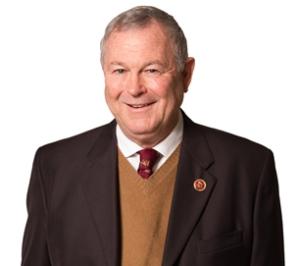
California Republican Rep. Dana Rohrabacher is again introducing a bill to give states the lead on marijuana policy. (house.gov)
Republican Congressman Files Federal Bill to Let States Set Own Marijuana Policies. Rep. Dana Rohrabacher (R-CA) Tuesday filed House Resolution 975, the Respect State Marijuana Laws Act. The bill would resolve conflicts between state and federal laws by exempting people and entities from certain provisions of the Controlled Substances Act if they are acting in compliance with state laws. Rohrabacher authored similar legislation in the last Congress, garnering 20 cosponsors, including seven Republicans.
Minnesota Legalization Bill Filed. Rep. Jon Applebaum (DFL-Minnetonka) filed a bill Wednesday to legalize marijuana for recreational use. "Minnesotans are rightfully developing different attitudes on marijuana," Applebaum said in a news release. "Other states' successes, along with the failed prohibition attempts of others, validated the need for a statewide conversation," he added. The bill is not yet available on the legislative website.
Medical Marijuana
Georgia Bill to Lower THC Levels, Add Autism Advances. A bill that would add autism to the list of qualifying conditions for using CBD cannabis oil, but would also lower the amount of THC in cannabis oil was approved by the Senate Health and Human Services Committee. Medical marijuana advocates like Senate Bill 16 for its autism provision, but don't want the lower THC provision. The bill would drop allowable THC levels from 5% to 3%.
Utah House Passes Medical Marijuana Research Bill. The House voted overwhelmingly Tuesday to pass House Bill 130, which would allow universities in the state to study medical marijuana. The bill is a fallback after legislators retreated from earlier plans to push an actual medical marijuana bill. The bill now advances to the Senate.
Wisconsin Senate Approves CBD Cannabis Oil Bill. The Senate voted overwhelmingly Wednesday to approve a bill allowing for the use of CBD cannabis oil to treat seizures. Senate Bill 10 now heads to the House.
Sentencing
Maryland Bill Would Set Criminal Penalties for People Who Sell Drugs Linked to Fatal Overdoses. A bill that would set criminal penalties of up to 30 years in prison for people who sell heroin or fentanyl where "the use of which is a contributing cause to the death of another" has been filed in the House. The measure, House Bill 612, aims not only at the person who directly sold the drug, but also anyone in the supply chain. It's scheduled for a committee hearing on February 28.
International
Morocco Drug Control Policy Sparking Unrest in Country's North. The death of an illegal fish vendor in November has sparked months of widespread protests and unrest in Morocco's Rif, but that unrest has been brewing for years thanks to a lack of economic development and the government's harsh treatment of cannabis growers, one of the few economic activities available to area residents: "This situation in which Rifans are left with few other economic options than to engage in illicit activities and risk criminal sanctions is aggravated by the harsh provisions of the Moroccan narcotics law. While drug use is punished with two months to one year in prison, the law allows for up to 30 years for drug trafficking offenses. The average sentence is around 10 to 15 years, even for minor, non-violent offences."
Philippines President Insults Former Colombia President Over Drug Policy Criticisms. Philippines President Rodrigo Duterte called former Colombian President Cesar Gaviria "an idiot" for publishing an article in the New York Times criticizing Duterte's murderous crack down on drugs. "To tell you frankly... they say that Colombia leader has been lecturing about me. That idiot," Duterte said.
Colombia Gives Land Titles to Families Abandoning Coca Crops. The Colombian government announced Monday it will grant land titles to some 10,000 peasant families that have given up on coca production. The program will take place in southern Cauca, Nariño and Putumayo provinces, where about half the country's coca is grown. The move comes after the government and the leftist guerrillas of the FARC agreed to a crop eradication and substation program last month.
back to top
A man who thinks marijuana users aren't "good people" is now the US attorney general, New York's Democratic governor cites the gateway theory as he opposes marijuana legalization, North Dakota lawmakers kill a welfare drug testing bill, and more.
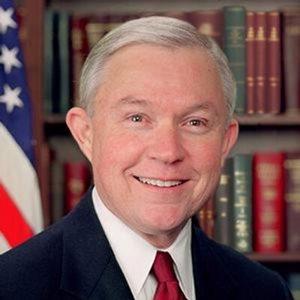
Meet the new boss: Attorney General Jeff Sessions takes office. (senate.gov)
New York Governor Calls Marijuana "Gateway Drug," Rejects Legalization. Gov. Andrew Cuomo (D) said Wednesday that marijuana is "a gateway drug, and marijuana leads to other drugs and there's a lot of proof that that's true... There's two sides to the argument. But I, as of this date, I am unconvinced on recreational marijuana."
Washington Bill Would Bar State From Helping Any Federal Crackdown. A bipartisan bill sponsored by Rep. David Sawyer (D-Lakewood) and three others would attempt to protect the state's legal marijuana industry by "prohibiting the use of public resources to assist the federal government in any activity that might impede or interfere with Washington state's regulation of marijuana and marijuana-related products." The measure is House Bill 1895, which is now before the House State Government, Elections, and Information Technology Committee.
Medical Marijuana
Kansas Medical Marijuana Bill Filed. State Sen. David Haley (D-Kansas City) has filed Senate Bill 155, which would allow patients with specified diseases or conditions to grow and possess medical marijuana, or have a caregiver grow it for them. The bill also envisions the creation of state regulated and taxed "compassion centers" or dispensaries.
Drug Policy
Jeff Sessions Confirmed As Attorney General, Drug Policy Reformers React. The Senate confirmed Alabama Republican Senator Jeff Sessions as Attorney General on a near party-line vote Wednesday night. The marijuana and drug reform communities -- among many others -- are nervous about how Sessions might deviate from the Obama administration's hands-off policy on marijuana in the states, as well as broader criminal justice issues. "Jeff Sessions and President Trump are stuck in the 1980s when it comes to drug policy, while most of the country knows by now that we need alternatives to the failed drug war," the DPA's Bill Piper said. "If the Administration tries to roll back marijuana reform or to undermine criminal justice reform they will find themselves even less popular than they are now."
Drug Testing
North Dakota Senate Kills Welfare Drug Testing Bill. The Senate killed Senate Bill 2279, which would have required mandatory "addiction screening" of people receiving food stamps, with those identified as being "at risk" of drug use being forced to undergo drug treatment. The measure died on a 20-26 vote after legislators pointed out that similar welfare drug testing programs have found only a tiny number of people.
International
Peru Government Will Present Medical Marijuana Bill. The administration of President Pedro Kuczynski said it will present a bill allowing for the use of medical marijuana to the legislature, which is dominated by the opposition. The move comes in the wake of a public uproar after police raided a Lima house where a group of parents grew marijuana to make cannabis oil to treat their children's epilepsy and other diseases.
back to top
Donald Trump takes a hard line on crime and drugs, a new Michigan poll has support for marijuana legalization at an all time high, a Brazilian Supreme Court justice calls for an end to the drug war there, and more.

Donald Trump takes a hard line on crime and drugs. (Gage Skidmore/Creative Commons)
Michigan Poll Has Support for Legalization at Highest Level Ever. A new poll from EPIC/MRA has support for marijuana legalization in the state at 57%. That's a four percent increase from the same poll last year. The poll comes as activists organized as MILegalize prepare efforts to get a legalization initiative on the 2018 ballot. They came up just short last year after the state legislature and state courts blocked their efforts to get all their signatures counted.
New Jersey Lawmakers Vow to Press Forward With Legalization Effort Despite Trump. Garden State lawmakers say the appointment of marijuana legalization foe Jeff Sessions as President Trump's attorney general will not stop them from pressing forward with their efforts. State Sen. Nick Scutari (D) said he is "concerned," but not deterred. "It doesn't give me pause. It's a concern but we are not going to pause," Scutari said Thursday. "Hopefully he will follow what President Trump said as a candidate -- that it's a states' rights issue."
Vermont's GOP Governor Opposes Legalization Bill. Gov. Phil Scott's (R) administration came out firmly against legalization Thursday. "We oppose this bill," State Police Major Glenn Hall told the House Judiciary Committee. "We speak with one voice," added Public Safety Commissioner Tom Anderson. "That's what the governor stands for also."
Medical Marijuana
Arkansas Bills to "Fix" Medical Marijuana Law Moving. Six medical marijuana-related bills moved out of committees to face floor votes in their respective chambers Wednesday. The House Rules Committee advanced five bills, while the Senate Education Committee advanced one bill. More bills are still in committee. Many of the bills deal with technical "fixes," but some of them would alter the way the program is intended to work. Click on the link for a complete rundown on the bills.
Drug Policy
Trump Signs Executive Orders Aimed at Drugs, Crime. The president signed three executive orders he said were "designed to restore safety in America." One that aims to "reduce crime and restore public safety" directs Attorney General Sessions to create a Task Force on Crime Reduction and Public Safety, which is charged with developing "strategies to reduce crime, including, in particular, illegal immigration, drug trafficking and violent crime" proposing new legislation, and submiting at least one report to the President within the next year. The second is aimed at combatting international drug trafficking organizations, while the third directs the Justice Department to use existing federal law to prosecute those who commit crimes against police officers.
International
Brazil Supreme Court Judge Calls for Marijuana, Cocaine Legalization. Supreme Court Justice Robero Barroso called Friday for marijuana and even cocaine to be legalized to erode the growing power of illegal drug trafficking organizations. Fifty years of drug war had only clogged jails with small-time offenders and fueled violent gang battles. "Unlike the United States and Europe where the problem lies in the impact drugs have on consumers, in Brazil the problem lies in the power drug traffickers have over poor communities," Barroso said. "I can assure you it is only a matter of time. Either we legalize marijuana now or we do it in the future after we have spent billions and incarcerated thousands."
back to top
Los Angeles voters go to the polls next month to decide on permitting dispensaries and pot shops, a New Mexico legalization bill hits a bump in committee, an Ohio bill would restore tough cocaine sentences based on the weight of filler -- not actual cocaine -- and more.

Los Angeles dispensaries (and adult pot shops) would be permitted under Measure M, before the voters next month. (Wikimedia)
New Mexico Legalization Bill Stalled in Committee. Even though Democrats have a majority in both houses of the legislature, dissent among key Democrats may kill a legalization measure, Senate Bill 278. The bill stalled in the House Judiciary Committee after legal concerns were raised, and one key lawmaker, Sen. Clemente Sanchez (D-Grants) said he would not support. Sanchez is chair of another committee the bill would have to pass through, and his no vote added to Republican no votes in the committee could sound the death knell for the bill.
Los Angeles to Vote on Regulating Pot Shops Next Month. Voters in the nation's second largest city will vote March 7 on whether to adopt Measure M, the Cannabis Activity Permits and Regulations Ordinance. The measure was put on the ballot by the city council and would give the city the power to permit the 135 medical marijuana dispensaries approved by voters under the earlier Measure D, as well as to permit recreational pot shops and marijuana businesses.
Medical Marijuana
Oklahoma Medical Marijuana Bill Filed. State Rep. Eric Proctor (D-Tulsa) has filed a medical marijuana measure, House Bill 1877. The bill would allow the use of medical marijuana for a list of specified illnesses and conditions and is modeled on the successful medical marijuana ,initiative passed next door in Arkansas in November.
Sentencing
Ohio Bill Would Revive Stiffer Sentences for Cocaine Dealers. State Rep. John Rogers (D-Mentor on the Lake) has filed House Bill 4, which would stiffen sentences by not requiring that the weight of the drug measure only actual cocaine and not inert filler. In a case last year, the state Supreme Court threw out cocaine sentences based on the weight of the filler, saying the state must prove the weight of actual pure cocaine in setting sentences. "Ohio's recent court decision sets a new, dangerous trajectory for our state by allowing drug dealers to buy and sell more cocaine with reduced consequences," Rogers said in a statement. "Instead of effectively handcuffing law enforcement from keeping dangerous drug dealers off our streets, I believe that we should be handcuffing the criminals who make our state and communities less safe with dangerous drugs." The bill includes an emergency provision that would allow it take effect immediately upon passage.
Asset Forfeiture
Kansas Legislature Punts on Asset Forfeiture Reform. After hearing testimony in the House Judiciary Committee last month on several asset forfeiture reform proposals and receiving an audit last summer that concluded police are taking advantage of vague state laws on how they should report and user seized property, the committee has decided not to act. Instead it has asked a judicial advisory group to review any potential changes.
International
Sinaloa Cartel Internal Power Struggle Behind Uptick in Cartel Violence, Mexican Official Says. Defense Minister Salvador Cienfuegos said Saturday that rising violence in parts of northern Mexico is most likely linked to an internal power struggle in the Sinaloa Cartel, which has fractured since its leader, Joaquin "El Chapo" Guzman, was first jailed in Mexico, then extradited to the United States. "In the absence of their leader, (rival factions) are fighting over who will control the organization," he said. "I think that's what is happening." More soldiers were to be sent there beginning today and military forces already there will be reorganized, he said.
back to top
Medical marijuana and harm reduction measures advance in New Mexico, a police drug field test kit maker is being sued by a Florida man busted for the glaze on his Krispy Kreme donuts, Idaho considers ending mandatory minimums for drug offenses, and more.

The New Mexico Senate has approved a pair of measures aimed at reducing overdose deaths. (Creative Commons/Wikimedia)
Virginia Lieutenant Governor Calls for Decriminalization. Lt. Gov. Ralph Northum (D) called Monday for the decriminalization of small amounts of marijuana, saying enforcement is costly and aimed disproportionately at African-Americans. The move comes weeks after Senate Majority Leader Thomas Norment (R-James City) requested that the Virginia Crime Commission study the issue. That move froze pending decriminalization legislation sponsored by Sen. Adam Ebbin (D-Alexandria).
Washington State Bill Would Repeal Legalization. Rep. Brad Klippert (R-Kenniwick) has filed House Bill 2096, which would repeal "all laws legalizing the use, possession, sale, or production of marijuana and marijuana-related products." The bill has been referred to the House Committee on Commerce and Gaming.
Wyoming Senate Committee Scales Back Marijuana Sentencing Reforms. The Senate Judiciary Committee voted to amend House Bill 197, weakening proposed sentencing reforms by doubling the period during which previous convictions would result in a longer sentence from five years to 10 years. More importantly, the amendment removes the plant form of marijuana from the bill completely, meaning the new tiered sentencing system would apply only to edibles.
Medical Marijuana
New Mexico Senate Passes Medical Marijuana Expansion Bill. The Senate voted 29-11 Monday to approve Senate Bill 177, which would expand the state's program by increasing the amount of marijuana patients may possess to five ounces and increasing the number of plants commercial providers can grow. The bill now goes to the House.
Drug Policy
Idaho Bills Would Alter State's Drug Laws. The House Judiciary and Rules Committee voted Monday to introduce a package of three bills that would reform the state's harsh drug laws. One bill would end mandatory minimum sentences for drug offenses and another would bar the seizure of vehicles for simple drug possession and require that property found near drugs be seized only if it is meaningfully connected to the crime. The third bill, however, is a step in the opposite direction -- it would allow heroin sellers to be charged with murder in the event of fatal overdoses.
Drug Testing
Florida Field Drug Test Kit Company Sued By Man Jailed for Possessing Donut Glaze. A Florida man is suing the police field drug test kit manufacturer Safariland LLC after an Orlando police officer using one of its field kits charged him with possessing methamphetamine although the substance being tested was actually the glaze from a Krispy Kreme donut. The drug test is either ineffective or unreliable, Daniel Rushing charges in his lawsuit, twice registering a positive result for meth and resulting in his false arrest and imprisonment before felony charges were dropped.
First Amendment
Federal Appeals Court Upholds Student Drug Legalization Group's Free Speech Rights. The 8th US Circuit Court of Appeals ruled Monday that Iowa State University cannot bar a student group from using the university's logo and mascot on t-shirts calling for the legalization of marijuana. Iowa State NORML had sued in 2014 after the university first gave its okay, but then refused permission after pressure from high-ranking state officials, including the governor's office. Instead, the university suddenly changed its guidelines, with new rules prohibiting designs "that suggest promotion of dangerous, illegal, or unhealthy products." Last year a federal district court filed an injunction prohibiting the school from using its new policy to block NORML from printing new t-shirts, and now the appeals court has upheld that permanent injunction.
Harm Reduction
New Mexico Senate Approves Pair of Harm Reduction Bills. The state Senate Monday overwhelmingly approved two bills aimed at reducing the number of fatal drug overdoses in the state. Senate Bill 47 would improve the state's 911 Good Samaritan law to include alcohol overdoses and eliminate the prospect of criminal liability for violating drug laws while seeking medical assistance for an overdose. Senate Bill 16 would require health care providers to counsel patients on the risk of overdose and to offer prescriptions for the overdose reversal drug naloxone. The bills now go to the House.
International
Trump Administration Accuses Venezuela VP of Drug Smuggling. The Treasury Department's Office of Foreign Assets Control has imposed sanctions on Venezuelan Vice President Tareck El Aissami, accusing him of being an international drug kingpin. Treasury said that El Aissimi facilitated drug trafficking in his previous post of Aragua state. The Treasury Department placed him on a list reserved for "specially designated narcotics traffickers," part of what's known as the Kingpin Act.
back to top
Vermont's GOP governor throws up an obstacle to marijuana legalization, the House GOP is set to vote to force unemployed workers to take drug tests before receiving their earned benefits, the rightist mayor of South America's largest city turns his back on harm reduction, and more.
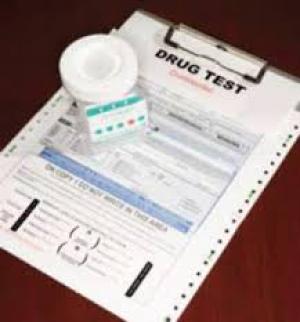
House Republicans want laid off workers to have to undergo suspicionless drug tests before receiving their earned benefits.
Oregon Bill Would Limit Pipe, Bong Sales to Pot Shops. Minority whip Rep. Jodi Hack (R-East Salem) has filed a bill that would only allow pot paraphernalia to be sold a licensed marijuana shops. Hack said the measure, House Bill 2556, was aimed at stopping minors from buying the stuff at gas stations, minimarts, and tobacco shops. But smoke shop operators and other retailers are vowing a fight.
Vermont Governor Demands Tough Driving Provisions Before He Will Support Legalization. Gov. Phil Scott (R) says he will not support a legalization bill before the legislature unless it has provisions allowing police to determine is someone is driving while impaired. "Certainly it's still problematic from the standpoint of public safety," said Scott. "I want to make sure that we address those concerns I talked about on the campaign trail in terms of impairment on our highways." He also acknowledged that current tests don't provide clear evidence of impairment, but used that uncertainty to say Vermont should wait and see how other states deal with the issue.
Medical Marijuana
Arkansas Medical Marijuana "Fix" Bills Advance. The House voted Monday to approve two bills aimed at tidying up the state's new medical marijuana law. The measures, both authored by Rep. Doug House (R-North Little Rock) are House Bill 1371, which requires that Arkansans hold 60% ownership interest in pot businesses in the state, and House Bill 1298, which requires that persons, not corporations, hold the licenses. The bills now head to the Senate.
South Dakota CBD Bill Advances. The Senate Judiciary Committee voted Tuesday to approve Senate Bill 95, which would reschedule CBD as a Class 4 drug in the state and remove it from the definition of marijuana under state law. The bill would legalize the possession and use of CBD, but only upon approval by the FDA. That requirement was added in committee.
Drug Testing
House to Vote on Drug Testing the Unemployed. The House was prepared to vote as early as today on House Joint Resolution 42, which would undo Obama administration limits on drug testing people seeking unemployment benefits. Under a compromise to extend unemployment benefits in 2012, the Obama administration agreed to limited drug testing, but only once the Labor Department had identified industries and sectors that "regularly require drug tests." People receiving unemployment benefits are people who have been laid off from work, not people who have been fired for cause, including drug use. People who are fired for cause don't qualify for unemployment benefits.
Arkansas Senate Approves Bill Making Welfare Drug Testing Permanent. The Senate Tuesday approved Senate Bill 123, which would make permanent a welfare drug testing pilot program approved two years ago, even though the pilot program had only two people fail a drug test and 11 decline to take it out of more than 3,000 people who applied for welfare last year. Under the Arkansas law, the children of people who fail a drug test lose their benefits unless their parent undergoes drug treatment at his or her own expense. The bill now goes to the House.
International
Sao Paulo's New Mayor Turns Back on Successful Harm Reduction Program. New Mayor Joao Doria will scale back a successful harm reduction program that provided housing and jobs to people with problematic crack cocaine use and replace it with a coercive and abstinence-based program. The Restart program Doria likes involves the involuntary "hospitalization and confinement of those who are victims of crack so that with medical treatment, they can stay away from drugs," he explained.
Venezuela VP Shrugs Off US Drug Sanctions. The Venezuelan government Tuesday condemned US sanctions imposed a day earlier on Vice President Tareck El Aissami as a "highly dangerous" infringement of Venezuelan sovereignty, while El Aissami himself called it a "miserable and defamatory aggression" that wouldn't distract him from his job. The US accuses El Aissami of facilitating cocaine shipments while he was a provincial governor.
back to top
The House approves a bill that could open the door to states drug testing people seeking unemployment benefits, harsh sentencing bills advance in Ohio and Kentucky, Houston decriminalizes marijuana possession (in most cases), and more.

The House has approved a bill that would allow states to expand drug testing of people seeking unemployment benefits. (wikimedia
Arizona PAC Plans to File 2018 Legalization Initiative. A political action committee called Safer Arizona was set to file a marijuana legalization initiative with state officials Thursday. Arizona voters narrowly devoted a similar measure last year, but organizers say this one will have some differences, including requiring that people be at least 21 before they can buy it. They will have to gather 150,000 valid voter signatures by July to qualify for the 2018 ballot.
Guam Legalization Bill Gets Hearing. In a hearing Tuesday on a marijuana legalization measure, Bill 8-34, representatives of the judiciary said they took no position on the bill, but cautioned that implementing legalization would require a review of the island territory's entire criminal code. Guam Customs and Quarantine acting chief, Maj. Phillip Taijeron also testified, saying he supported the will of the people. "If the will of the people is to enact Bill 8-34, then I am in support of Bill 8-34," Taijeron said.
New York State Assembly Passes Landmark Legislation to Seal Past Marijuana Possession Convictions. The Assembly voted Tuesday in favor of Assembly Bill 2142, which would seal the criminal records of people who have been unjustly and unconstitutionally arrested for simple possession of marijuana in public view. The vote was 95 in favor and 38 opposed.This sealing legislation has taken on increased importance amid the Trump Administration’s rhetoric and actions targeting immigrant communities. On the national level, simple marijuana possession is the fourth most common cause of deportation, according to the report "Secure Communities and ICE Deportations: A Failed Program?" Sealing records will provide a measure of protection for immigrants by making it difficult or impossible for immigration authorities to meet their legal burden of proof for a judge to find a lawful permanent resident deportable. Additionally, sealing will guard against the Trump administration's Executive Order targeting noncitizens with any criminal arrests and/or convictions for deportation. If the arrest is also sealed and the sealed information is not shared with the FBI, these individuals may be at lower risk of becoming an enforcement target.
Houston to Decriminalize Marijuana Possession. The nation's fourth largest city is ready to decriminalize small-time marijuana possession. As of March 1, under a new "Misdemeanor Marijuana Diversion Program," in most circumstances people caught with an ounce or less will face no jail, no tickets, no court appearances and no criminal record. Houston and surrounding Harris County have spent $200 million prosecuting 100,000 pot possession cases in the past decade, with "no tangible public safety benefit," said District Attorney Kim Ogg (D), who took office this year.
Medical Marijuana
Indiana Senate Passes Limited CBD Bill. A measure that would allow people with epilepsy to use low-THC cannabidiol oil passed the Senate Tuesday. The measure, Senate Bill 15, now moves to the House.
Virginia Republicans Kill CBD Expansion Bill. Patient advocates burst into tears Wednesday night as six House Republicans voted to kill a major expansion of the state's CBD law, which limited its use to people with epilepsy. Senate Bill 1298 would have expanded the law to allow its use for treatment for 13 more conditions, but the bill was killed by a 5-6 party line vote in the subcommittee that writes criminal law.
Asset Forfeiture
Colorado Cops Lobby Hard, Defeat Asset Forfeiture Reform. A proposal to expand oversight of police seizures of property was defeated in a party line vote in a Senate committee Wednesday, with Republicans casting all the "no" votes. The measure, Senate Bill 17-136, would also have prevented law enforcement agencies from turning property over to the federal government to get around state restrictions unless the property was worth more than $50,000. The vote came after a parade of law enforcement officers testified against the bill.
Drug Testing
House Approves Measure Aimed at Expanding Drug Testing of People Who File for Unemployment Assistance. The House approved H.J. Res 42, which would repeal a recently finalized Department of Labor rule that interpreted a 2012 federal law that permits states to drug test people who file for unemployment insurance in certain circumstances. Advocates see the repeal of the Department of Labor rule as a first step by some Republicans in Congress at undoing federal restrictions on states conditioning receipt of unemployment and other forms of public assistance on a drug test. The measure now goes before the Senate.
Sentencing
Kentucky Senate Passes Bill Toughening Penalties for Heroin, Fentanyl Sales. The Senate voted unanimously Thursday to approve a bill increasing penalties for people trafficking even the smallest amounts of heroin and fentanyl. The measure, Senate Bill 14, rolls back sentencing reforms enacted in 2011. Under those reforms, trafficking less than House Bill 4, which reverses a state Supreme Court ruling that only the weight of actual cocaine -- not filler -- be used when imposing stiffer sentences for possession and trafficking. Under the bill, prosecutors would be able to sentence defendants based on the weight of the entire mixture. Under the bill, a pound of powder that contained only a gram of cocaine would be considered a pound of cocaine for sentencing purposes. The bill now moves to the Senate.
back to top
The Alabama legislature ponders harsh drug sentences not seen since the last century, decriminalization is picking up some support in Texas, China announces scheduling controls on fentanyl, and more.

An Alabama bill would make possession of as little as an ounce of fentanyl a mandatory life sentence without parole.
Cannabis, Drug Policy Reform Advocates Commend Congressional Members on Formation of Congressional Cannabis Caucus. In a joint statement Thursday, major marijuana and drug reform groups commended congress members for forming the Congressional Cannabis Caucus, led by Reps. Earl Blumenauer (D-OR), Dana Rohrabacher (R-CA), Jared Polis (D-CO), and Don Young (R-AK). After commending the representatives, the joint statement noted that "the establishment of a Cannabis Caucus will allow members from both parties, who represent diverse constituencies from around the country, to join together for the purpose of advancing sensible cannabis policy reform. It will also facilitate efforts to ease the tension between federal prohibition laws and state laws that regulate cannabis for medical and adult use."
Texas Decriminalization Bill Picks Up Some Support. Law enforcement officials joined House Criminal Jurisprudence Committee Chairman Joe Moody (D-El Paso) at the capitol Thursday to express support for a measure to decriminalize the possession of up to an ounce of weed, House Bill 81. The bill is currently before the committee. Harris County, the state's most populous, just announced plans to institute decriminalization there.
Medical Marijuana
Georgia Senate Passes Medical Marijuana Bill, But Advocates Say It's a Step Backwards. The Senate Thursday approved Senate Bill 16, but advocates said it was a retreat because it lowers the amount of allowable THC in cannabis oil from 7% to 3%. Some senators wanted to reduce it to 1%. The bill now goes to the House, where Rep. Allen Peake (R-Macon), who wrote the original CBD bill, said he hopes to rewrite it to restore the 7% figure.
Utah Medical Marijuana Research Bill Wins Committee Vote. The Senate Health and Human Services Committee voted Thursday to approve House Bill130, which would allow universities in the state to do research on the medicinal effects of marijuana. The bill has already passed the House and now awaits a Senate floor vote.
Hemp
Arizona Industrial Hemp Bill Advances. A bill that would legalize the production and processing of industrial hemp has passed two key committees. Senate Bill 1337 passed the Public Safety Committee on a 6-1 vote Monday and the Appropriations Committee Tuesday on a 10-0 vote. It still needs to go before the Senate Rules Committee before it heads for a floor vote.
Asset Forfeiture
North Dakota Asset Forfeiture Reform Bill Advances. The House Judiciary Committee approved House Bill 1170 on an 11-4 vote Thursday. The bill would require a criminal conviction before property could be seized in most situations and bans prosecutors from circumventing state law by handing cases off to the federal government. The measure now heads for a House floor vote.
Sentencing
Alabama Bills Would Increase Heroin, Fentanyl Sentences. Under bills currently before the state legislature, prison sentences would go up for people who possess or sell heroin and fentanyl. Under one bill, anyone convicted of their possession would face mandatory prison sentences, and under another, Senate Bill 154, people possessing as little as one ounce of fentanyl would face a mandatory sentence of life without parole. The state instituted sentencing reforms several years back; some legislators worry these bills would undo those efforts.
International
China Announces Scheduling Controls of Carfentanil and other Fentanyl Compounds. China announced Thursday that it will begin scheduling controls of four fentanyl-class substances -- carfentanil, furanyl fentanyl, valeryl fentanyl, and acryl fentanyl -- beginning March 1. Chinese pharmaceutical factories have been identified as major producers of the synthetic opioids, which are linked to thousands of drug overdose deaths in the US.
back to top















